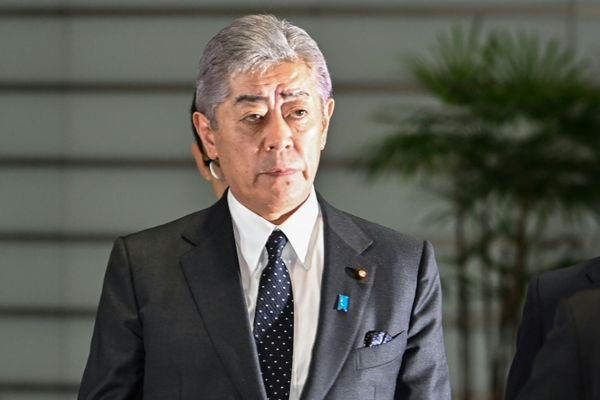MONTREAL — The fatal shooting by Montreal police of a man in distress highlighted a lack of training for officers dealing with people in crisis, a Quebec coroner found in a report released Wednesday into the 2017 death of Pierre Coriolan.
Coriolan, 58, was shot three times by police in 2017 after officers responded to a call about a man smashing things inside his apartment. A pathologist ruled Coriolan died of abdominal trauma from a gunshot, and a toxicology report found high traces of cocaine in his system.
"This intervention does not meet what is expected of police officers trained in recent years," coroner Luc Malouin wrote. "And, in my humble opinion, this is the biggest problem of this intervention: police officers who have not had the most recent training in intervention with people in crisis (and) therefore acted with outdated methods that were in no way up to date with current knowledge."
Six police officers responded to the call involving Coriolan, and their intervention lasted just over five minutes. Coriolan was sitting on a sofa holding a knife and screwdriver, and when he did not obey instructions to drop them, police opened fire. They had first tried to subdue him with a stun gun and rubber bullets.
Malouin said that police should have switched to a defensive posture when they saw Coriolan was alone and sitting on a sofa when they arrived. Instead, two officers began yelling at him simultaneously, provoking what the coroner described as a "chain reaction."
"The manner in which the police summoned Mr. Coriolan is questionable, because two police summoned at the same time when it is recommended that only one police officer do so to avoid a possible contradiction in the orders given to the person concerned," the coroner said.
Officers involved in the shooting had been trained to subdue an active shooter, the coroner noted.
"They followed the guiding principle of rapid-response tactical training, which is to quickly isolate and control the threatening person," Malouin said. "This training is still valid for an active shooter, but not for a person whose mental state is disturbed."
In 2019, Quebec prosecutors concluded the officers who fired on Coriolan, who was Black, would not face charges after an investigation by the province's police watchdog, the Bureau des enquêtes indépendantes.
Malouin's inquest began in February 2020 and was delayed by the pandemic. He wasn't tasked with finding wrongdoing, but with making recommendations that would avoid a repeat in a future police intervention. Twenty-one people testified, including two experts in the use of police force.
He concluded that the police's actions that day demonstrated they had failed to plan the intervention, but their behaviour was consistent with their training, he said, adding that the officers didn't know that Coriolan was alone in the apartment.
The coroner noted in his report that the 911 dispatcher mentioned Coriolan was in distress but did not tell the officers the man was likely alone — information that would have changed the officers' approach, he said. Experts on police use of force told the coroner's inquest the operation would have benefited from a slower approach and that a sergeant charged with overseeing the operation should have stayed back to analyze and direct officers.
A lawyer representing Coriolan's family said Wednesday they were satisfied with the coroner's findings. The family is suing the city over Coriolan's death.
"When we put his report in this context, of course they are satisfied with the conclusion," Virginie Lemire-Dufresne said in an interview. "Many questions remain but they can be proven in the trial that will happen in May."
Recommendations made to police, the Public Security Department and the province's police academy include mandatory training for police officers and supervisors on how to de-escalate situations involving people who are mentally ill or intoxicated.
The police have changed how they engage with mentally disturbed people, Malouin said. Since 2019, the province's police academy has developed a use of force model encouraging communication.
Malouin said the academy has implemented a course on de-escalation tactics, but added that there is no plan to update the training or to require that officers take refresher courses. The Montreal police force, he said, has also created a new training module on de-escalation tactics but it, too, doesn't have a plan to require officers take refresher courses.
In a statement Wednesday, Montreal police said officers are being trained on how to de-escalate situations.
"We openly welcome the report and will analyze all of the recommendations made, more specifically those regarding the (Montreal police) and relating, in particular, to training," the police force said in an emailed statement, adding that it wouldn't comment further.
Malouin's report noted that in Montreal alone, the police force gets 50,000 calls annually about people in crisis, making it essential, he said, for police to continually receive training.
"Given the volume of these calls, it would be appropriate to consider that the police are better equipped to intervene and that these skills require frequent updating and requalification, just like other techniques that are subject to periodic requalification," he wrote.
This report by The Canadian Press was first published Feb. 16, 2022.
Sidhartha Banerjee, The Canadian Press







